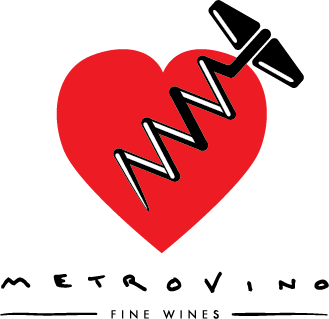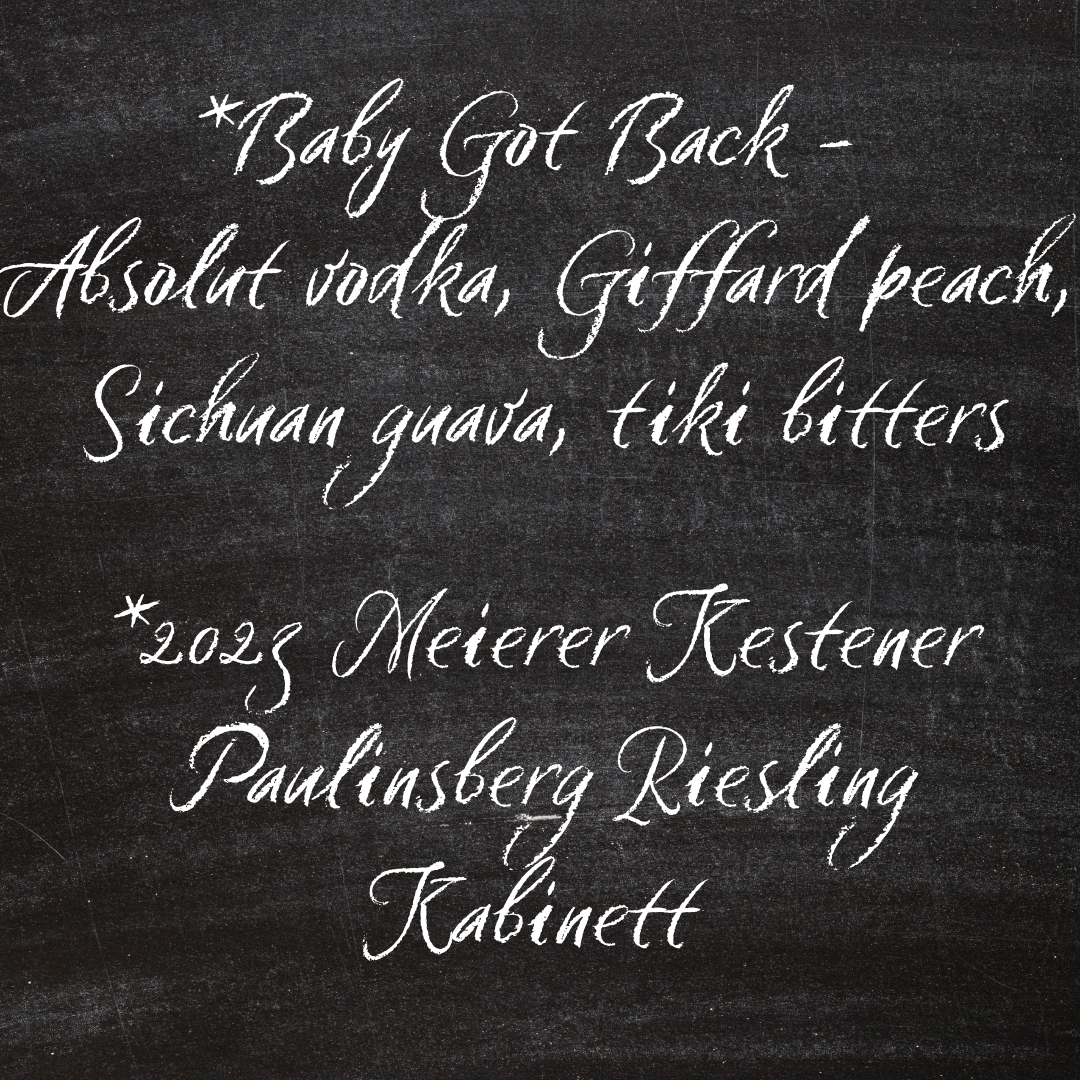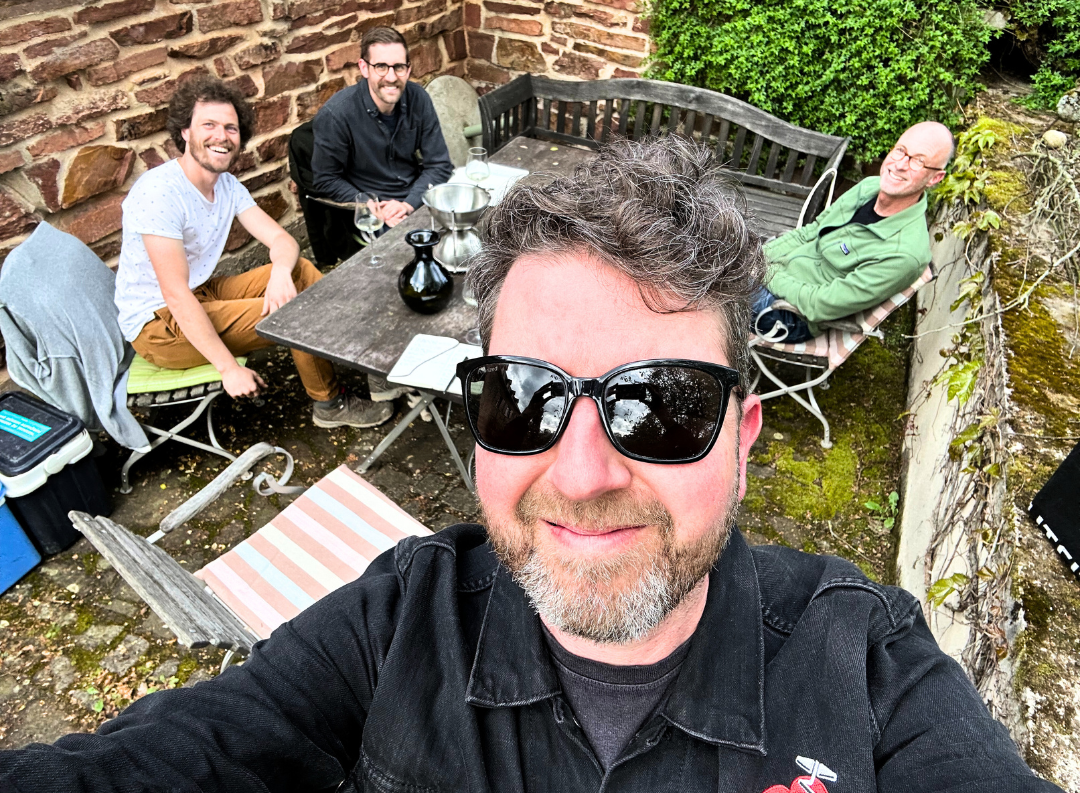By Al Drinkle
“There is on the world’s round surface a numberless, nameless throng who could never find enough alleviations for the sufferings in sleep. Wine composes songs and poems for them.”
Charles Baudelaire, On Wine and Hashish
“You can tell a great wine merchant as soon as you walk into the establishment. The floor will be spotless, the bottles carefully dusted and polished. Light classical music will be warbling unobtrusively from carefully concealed speakers. The staff will be well-groomed, have clean fingernails and polished shoes, wear neck ties, speak proper English, and will not be sporting such disgusting modern trappings as name tags, body piercings, tattoos, moustaches or breasts.”
Oberon Kant, Oberon Kant’s Big Book of Wine
Fuelled by slices and sips, my Metrovino colleagues and I had just wrapped up a stimulating evening of brainstorming. Afterwards, I rode my bike home through the dark, lusty summer air when the following thoughts occurred to me.
It's well known that the wine industry is in crisis, and for myriad reasons of varying complexity. As a noun, "wine” seems to be stigmatically burdened in many ways, and I wonder if it's time to take everything that's beautiful about this inimitable gift from nature and start over with a new name.
Every week there's yet another article published detailing how young people aren't getting into wine. I don't deny that this is a serious problem, but I'm not the least bit surprised that the issue persists. I've been professionally obliged to participate in more than one wine function this year that was so patently boring, stuffy and elitist that, had I been exposed to such an event at the age of 20 or so, I would have sworn off wine for the rest of my life and openly chastised anybody in my orbit who demonstrates an active interest. Despite wine lovers’ best efforts against it, this stereotype is woefully perpetuated, and exacerbated by the idea that the beverage exists primarily for the status-reinforcement of wealthy, white males above the age of 40. I'm only wealthy in terms of health and happiness, but I'm acutely aware that I otherwise fit the stereotype. However, discourse with other “wine” people sometimes makes me feel like I'm actually an alien.
Even when the stumbling blocks of terminal stuffiness are overcome (we try our best here!), young Albertans might still be deterred by the impact that inflation, exchange rates and taxes are imposing upon the category—the entry point for what I would consider "authentic" wine challenges some peoples’ idea of affordability. But let's say that against all odds, a twenty-something develops a fledgling interest.
Some might engage with wine casually, and continue to do so over the long term. That’s great, both for them and the wine industry. Others may have likeminded friends with whom they can pitch on bottles and gather in the evening, referencing esoteric fruits and flowers as they taste (probably not recognising that they may be prematurely emulating their parents). Some young people might even pursue wine academically and enroll in courses. They'll read about the wine classics of the world—Bordeaux, Burgundy, Champagne and others. They'll relish in the history of these hallowed lands and immerse themselves in maps and geological details. But it won't take long before their hearts are broken and they're left disillusioned and forlorn, realising that despite how enthusiastic they are about wine, there's not a chance in hell that they'll ever be able to afford or probably even taste the benchmarks. It didn't used to be this way and I question whether it has to be—but it's not for me to decide.
In addition to the general elitism of wine culture and the prohibitive pricing on what we’re told is the good shit, wine can be mercilessly intimidating. This is a very distinct issue from it being a complex discipline. I’m grateful to occasionally operate motor vehicles despite the fact that I lack all fundamental understanding as to how they function. Similarly, one wishes that more people were willing to enjoy the innumerable benefits of wine drinking, even if the geology, chemistry and nomenclature remain opaque to them. The complexity of wine—the way that a minutiae of detail has such a profound effect on flavour—is part of what makes it so fascinating and compelling to many of its most fervent admirers, and I'm not claiming that any of this should be jettisoned. But I wish that there was an easier way to reconcile complexity with accessibility. One particular movement came close, even if it was unintentional.
A couple of decades ago, many involved in wine found that its general production had become too technical and manipulated; its ownership structures too corporate; its flavours too predictable and “international". At first, a few intrepid individuals initiated a rebellion against the status quo and before long, “natural wine” became a movement of note.
At their best, natural wines were commended for their purity of pursuit, their quaintness of flavours, and their small-scale beauty. They were usually affordable too. An unforeseen but brilliant byproduct of this is that “natural wine” became its own brand, unfettered from the intimidating complications of cultivar and place of origin—not to mention all the indecipherable jargon found on, say, German or Basque wine labels. Disciples of the movement no longer had to familiarise themselves with the subdistricts of Touraine or which grapes were authorized in which Alsace Grand Crus. They only had to look out for the playful crayon labels or, in their absence, ask retailers or sommeliers to point them in the right direction. The goal was simply to relax and enjoy.
Never mind that as natural wine became more and more mainstream its ease of sales increased, its ideological lines became amorphous, and more and more wines waving the natural flag tasted suspiciously like fermented elephant diarrhea. The best remain brilliant and vinous ambassadors everywhere should be grateful for the movement's partial democratisation of wine.
All that being the case, no category of wine can compete with cocktails. Not in terms of accessibility or utilitarian appeal, and therefore certainly not in terms of popularity and sales. When cocktails started accumulating relentless momentum about 15 years ago, I nervously asked Richard if he'd seen this phenomenon previously. He answered without concern that, yes, the cocktail trend comes and goes. But this time it's not going.
Sometimes I feel like people just like to use the word "cock". With all due respect to the level of creativity and skill that goes into crafting good cocktails, one wonders why an increasingly health-conscious society overwhelmingly prefers distilled alcohol, sugar and food colouring to the far less deleterious, food-friendly splendour that is wine. Well, besides our unyielding but frequently denied obsession with sugar, part of the reason must be the effortless navigability of cocktail offerings as opposed to wine options. A restaurant that we work with—and one who boasts a wine list that I consider to be eminently dynamic—offers the following two beverage selections, amongst many others:
Both options cost $18 per serving. The first one sounds decidedly sexy while the second one sounds like something that might give you a rash… or the technical name for your rash… or the prescribed ointment for your rash. People want to have fun when they go out but engaging with a wine list is the antithesis of fun for 90% of diners. And those without baseline experience must have confidence—not to mention a patient and knowledgeable server—if they even want to ask the right questions about wine! Choosing between “Bols to the Wall” and “Hangover Barbie Slush” is far less daunting.
In both retail and restaurant settings—assuming one is shopping and dining at addresses that employ professionals—I would encourage more neophytes (we're all neophytes to a degree!) to simply state that they're looking for something that's fucking delicious and exciting within their particular budget. Again, assuming a venue where a love of wine leads the way, those who have curated the offerings want nothing more than for their customers or guests to have the most positive experience possible.
Wine is a glorious, timeless, natural product that has eminently improved my life, just as it’s done for innumerable others that I know. But its culture is often exclusive, its alluring complexities are too often perceived as intimidating inconveniences, and the bottles that everyone's salivating over on Instagram probably cost more than your car. I don't have the answers. I barely have ideas. But I want young people to be exposed to wine and fall in love with it the way that I did so that they might one day become older people who love it the way that I do now. Maybe to entice them, we really do need a new word for “wine”.
Perhaps we should reinvent the category as “Earth cocktails" or something. People could continue to use the word “cock”, and we could compellingly market the liquid in question as the result of a felicitous plant grown in such a hospitable place that their symbiosis resulted in a natural elixir that sprung forth from the ground in perfect, gossamer harmony. Which it did.






